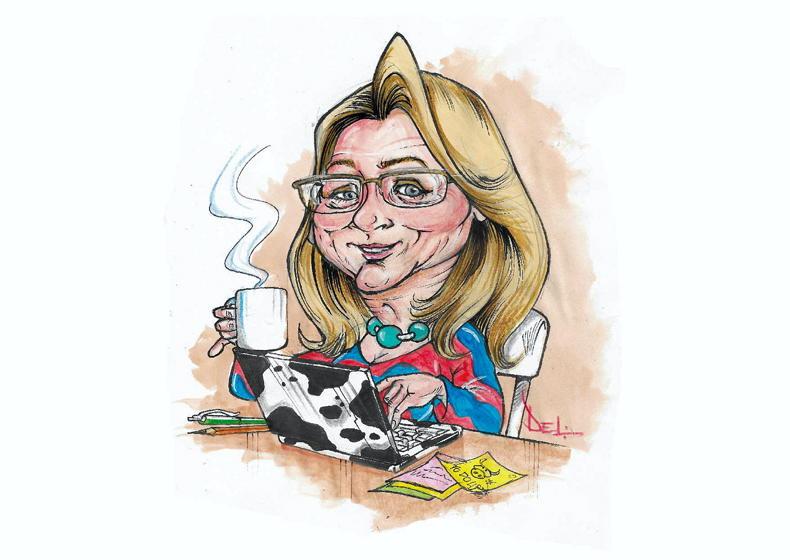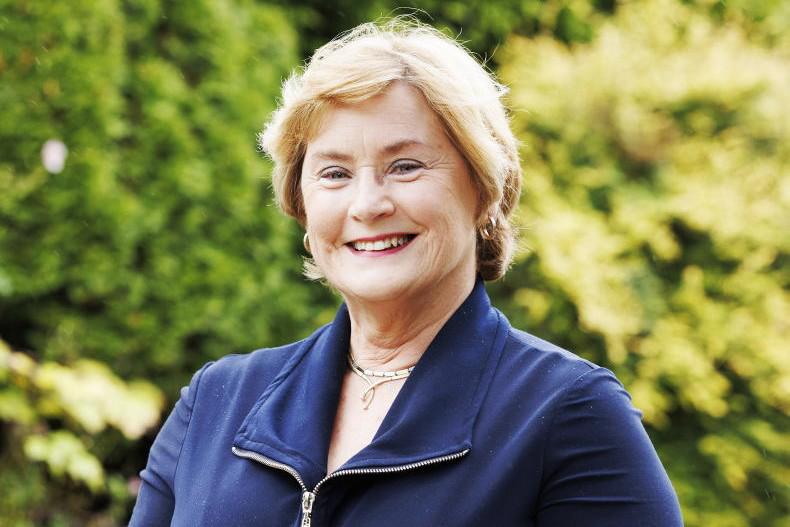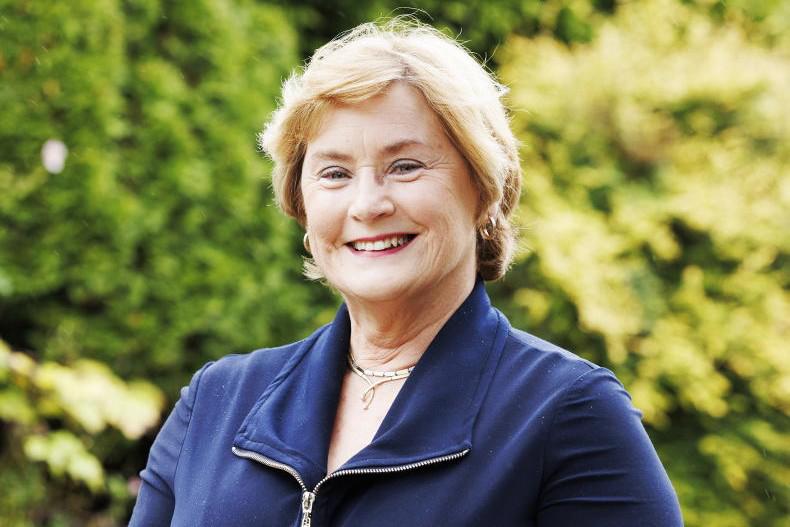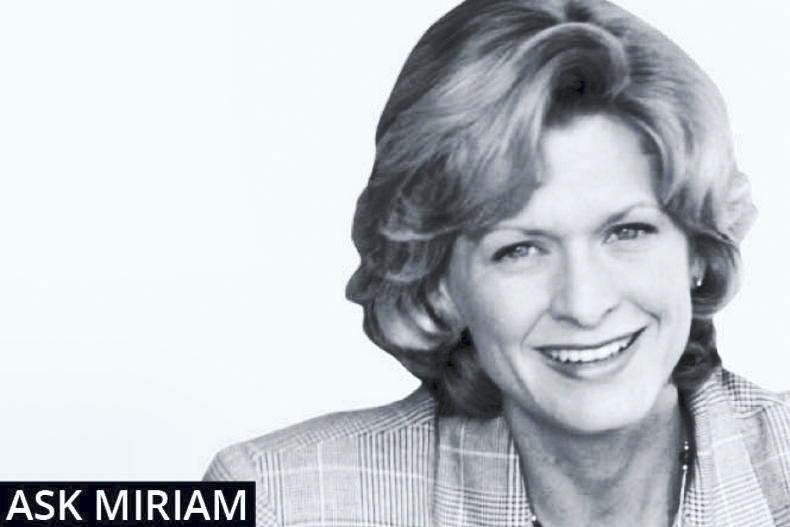In 2022, people still find it very hard to talk about feeling unwell in their minds. Instead, they become overwhelmed and possibly unable to cope. We have to ask ourselves: why it is so difficult to talk about our mental health?
There is a stigma around mental health problems and this often prevents people seeking help at an early stage of the illness.
That stigma probably dates back to famine times and particularly its aftermath when a lot of vulnerable people were committed to asylums - largely because of poverty. They very often never returned home again.
History has a funny way of influencing our psyche and so a stigma can be handed down through generations. Consequently, people still feel embarrassed and instead of talking about feeling stressed, you clam up and imagine that it will pass, your mojo will return and all will be well. You could be heading for a breakdown. Go to your doctor and have a chat about it.
Mental health is fragile
It was my privilege to explore these concerns and realities with daiy farmers Mr David Kerr and Mr Jonathan Dwyer at the European Dairy Farmer’s conference two weeks ago when I chaired the session entitled ‘Be Aware of your Mental Health.’
People possibly know their cholesterol level but really have to think to assess their mental health. If I broke my leg and ended up at a gathering; people would want to know what happened, how it happened and how was I managing.
I’d be happy to give all the details of my accident. I’d enjoy the attention and I’d feel that people cared. Others would relate similar accidents.
We do not treat someone known to have mental health issues with the same attention, curiosity and care. We do not engage. It is time we decided to change our views and instead let people know that we are concerned and caring about peoples’ mental health status.
Our minds are fragile and precious. It is necessary to take breaks, to get enough sleep and to reduce the workload if you are feeling overwhelmed.
David Kerr, an EDF member who milks 160 crossbred cows in Co Laois, experienced a breakdown 14 years ago.
He spoke honestly about how a lot of things were going on together in his life: the farm was busy, a family member was ill, investments had been made on the farm and there were cash flow issues. He couldn’t sleep. David’s mind was racing. He couldn’t cope.
Finding himself in the local hospital for treatment was a nightmare. He knew many of the healthcare workers. He was profoundly embarrassed.
If you are feeling unwell talk to someone and make an appointment with your GP
After a while, David found the right hospital in St Patrick’s Mental Health Services in Dublin and the right doctor. Tellingly, he also met a lot of farmers.
David recovered and has never looked back. Nevertheless, he is very aware of his mental health and has since made sure to minimise stress by managing his farm and life so that he avoids getting overwhelmed by using contractors and having enough help on the farm.
Since that time, David has helped many farmers by talking about his breakdown and his recovery. Sometimes, all one needs is a role model such as David to point you in the right direction.
Make the moove
Jonathan Dwyer, a prominent Macra member, also spoke about the difficulties in getting young farmers to talk about their mental health. In 2018 Jonathan and John Keane, current Macra President set up Make the Moove in Devils Bit Macra.
There had been a number of people that had died by suicide in the area and they decided that intervention was necessary. The long-term goal of Make the Moove is to have a complete rural support service for people who might be experiencing mental health difficulties. The movement continues to grow and develop services along with being involved with a research project in UCD.
Should one intervene?
Both Jonathan and David advised being aware of the people around us. If someone might be acting out of character - maybe having difficulty sleeping, appearing anxious and not being able to cope whereas they normally breeze through challenges - then ask them how they are feeling.
As with most other human conditions, early intervention is really important for a timely recovery. If you are feeling unwell talk to someone and make an appointment with your GP.
Read more
Farmers, processors, industry, research and advisory in agreement
Katherine's Country- finally it rains
In 2022, people still find it very hard to talk about feeling unwell in their minds. Instead, they become overwhelmed and possibly unable to cope. We have to ask ourselves: why it is so difficult to talk about our mental health?
There is a stigma around mental health problems and this often prevents people seeking help at an early stage of the illness.
That stigma probably dates back to famine times and particularly its aftermath when a lot of vulnerable people were committed to asylums - largely because of poverty. They very often never returned home again.
History has a funny way of influencing our psyche and so a stigma can be handed down through generations. Consequently, people still feel embarrassed and instead of talking about feeling stressed, you clam up and imagine that it will pass, your mojo will return and all will be well. You could be heading for a breakdown. Go to your doctor and have a chat about it.
Mental health is fragile
It was my privilege to explore these concerns and realities with daiy farmers Mr David Kerr and Mr Jonathan Dwyer at the European Dairy Farmer’s conference two weeks ago when I chaired the session entitled ‘Be Aware of your Mental Health.’
People possibly know their cholesterol level but really have to think to assess their mental health. If I broke my leg and ended up at a gathering; people would want to know what happened, how it happened and how was I managing.
I’d be happy to give all the details of my accident. I’d enjoy the attention and I’d feel that people cared. Others would relate similar accidents.
We do not treat someone known to have mental health issues with the same attention, curiosity and care. We do not engage. It is time we decided to change our views and instead let people know that we are concerned and caring about peoples’ mental health status.
Our minds are fragile and precious. It is necessary to take breaks, to get enough sleep and to reduce the workload if you are feeling overwhelmed.
David Kerr, an EDF member who milks 160 crossbred cows in Co Laois, experienced a breakdown 14 years ago.
He spoke honestly about how a lot of things were going on together in his life: the farm was busy, a family member was ill, investments had been made on the farm and there were cash flow issues. He couldn’t sleep. David’s mind was racing. He couldn’t cope.
Finding himself in the local hospital for treatment was a nightmare. He knew many of the healthcare workers. He was profoundly embarrassed.
If you are feeling unwell talk to someone and make an appointment with your GP
After a while, David found the right hospital in St Patrick’s Mental Health Services in Dublin and the right doctor. Tellingly, he also met a lot of farmers.
David recovered and has never looked back. Nevertheless, he is very aware of his mental health and has since made sure to minimise stress by managing his farm and life so that he avoids getting overwhelmed by using contractors and having enough help on the farm.
Since that time, David has helped many farmers by talking about his breakdown and his recovery. Sometimes, all one needs is a role model such as David to point you in the right direction.
Make the moove
Jonathan Dwyer, a prominent Macra member, also spoke about the difficulties in getting young farmers to talk about their mental health. In 2018 Jonathan and John Keane, current Macra President set up Make the Moove in Devils Bit Macra.
There had been a number of people that had died by suicide in the area and they decided that intervention was necessary. The long-term goal of Make the Moove is to have a complete rural support service for people who might be experiencing mental health difficulties. The movement continues to grow and develop services along with being involved with a research project in UCD.
Should one intervene?
Both Jonathan and David advised being aware of the people around us. If someone might be acting out of character - maybe having difficulty sleeping, appearing anxious and not being able to cope whereas they normally breeze through challenges - then ask them how they are feeling.
As with most other human conditions, early intervention is really important for a timely recovery. If you are feeling unwell talk to someone and make an appointment with your GP.
Read more
Farmers, processors, industry, research and advisory in agreement
Katherine's Country- finally it rains









SHARING OPTIONS